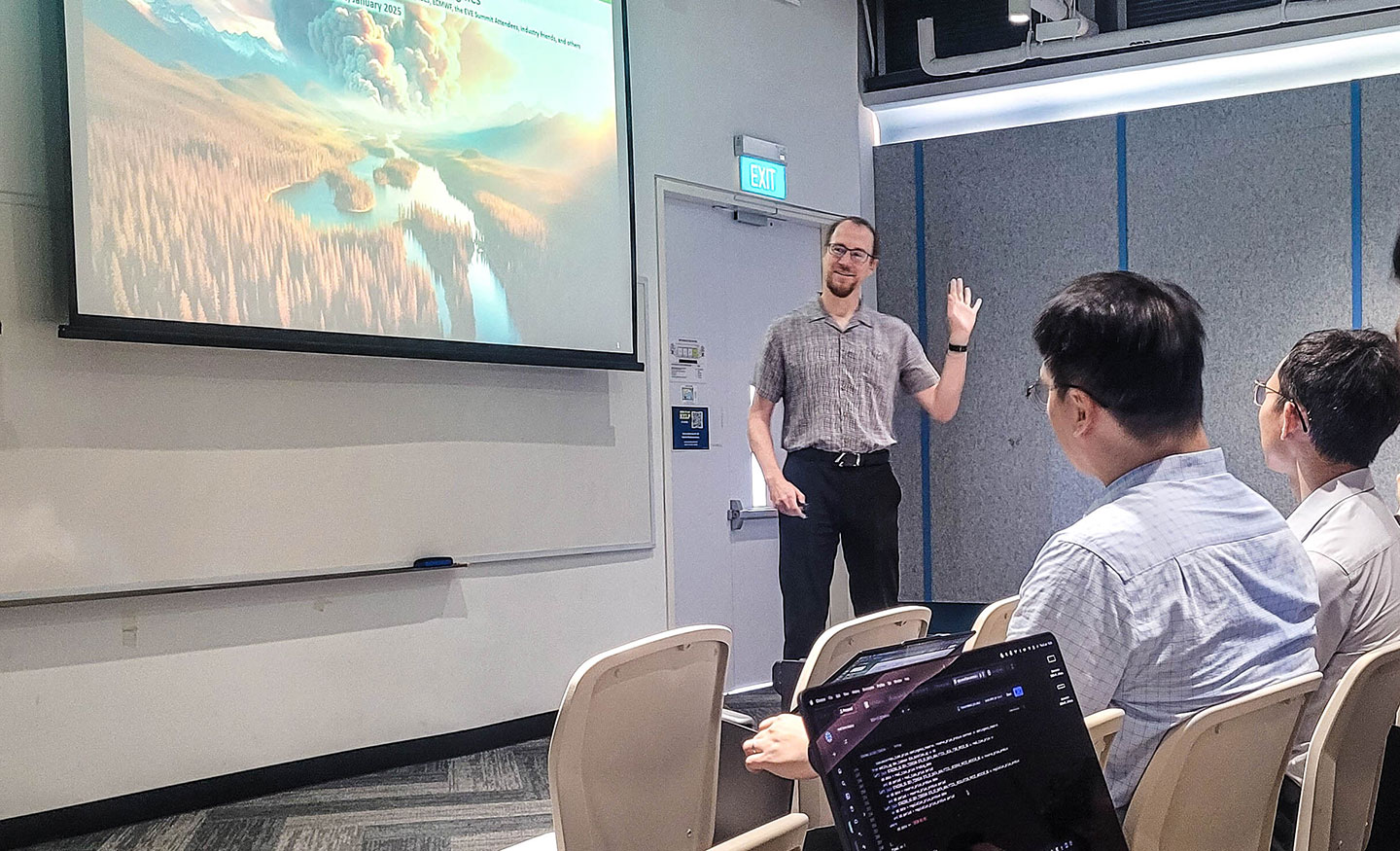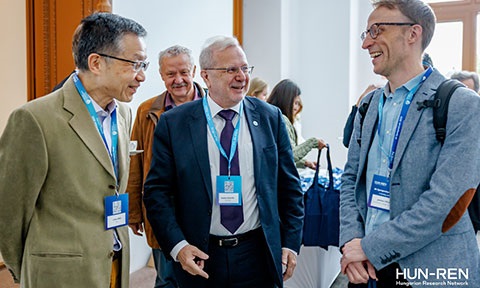AI-augmented Climate Science Can Save Lives: Torsten Hoefler

At a recent talk hosted by the College of Computing and Data Science (CCDS), Torsten Hoefler, a professor at ETH Zurich and a leading expert in high-performance computing, outlined how artificial intelligence (AI) and advanced computational models can improve climate predictions and ultimately help communities prepare for extreme weather events.
“Severe climate conditions are becoming more frequent and intense. It’s critical to use tools like supercomputers and machine learning to better predict and prepare for these challenges,” Hoefler stated.
One of the core innovations discussed was the Earth Virtualization Engine (EVE), a system that merges high-resolution physics-based models with AI. This hybrid approach, Hoefler explained, dramatically improves the accuracy and speed of climate simulations, allowing scientists to provide actionable insights in record time. For instance, EVE’s ability to integrate vast amounts of data means that communities can receive localised forecasts, crucial for preparing against natural disasters like hurricanes or flash floods.
Hoefler focused on the importance of integrating machine learning into traditional climate models to enhance their accuracy and efficiency. He highlighted his student’s recent work on DiffDA, a machine learning-based model that uses sparse observational data to create detailed atmospheric analyses. This approach enables weather predictions at high resolution, offering improved insights into climate dynamics.
Hoefler emphasised the real-world implications of these advancements, particularly for vulnerable populations living in regions prone to extreme weather.
“It is important to enable these global climate simulations at a local scale, such that we can predict local effects. This will benefit communities, like the global south, that may not have these resources,” he explained.
The talk also addressed the computational challenges of high-resolution climate simulations. Hoefler’s recent research underscores the need for specialised supercomputers to handle the massive workloads involved. He noted that advancing AI-driven climate science will require continued investment in computational infrastructure to ensure these technologies are accessible and effective.
While Hoefler’s work is technical in nature, its ultimate goal is deeply human: to equip societies with the tools to adapt to an increasingly unpredictable climate.




-singapore-team-selection-test-6c639870-7d55-4d34-8fdc-3e49bcbdd219.tmb-listing.jpg?Culture=en&sfvrsn=43e2bfc5_1)
-2024.tmb-listing.jpg?Culture=en&sfvrsn=6299ec80_1)
1a38155d-12ed-4765-9618-410d4861990f.tmb-listing.jpg?Culture=en&sfvrsn=7ce90a01_1)
